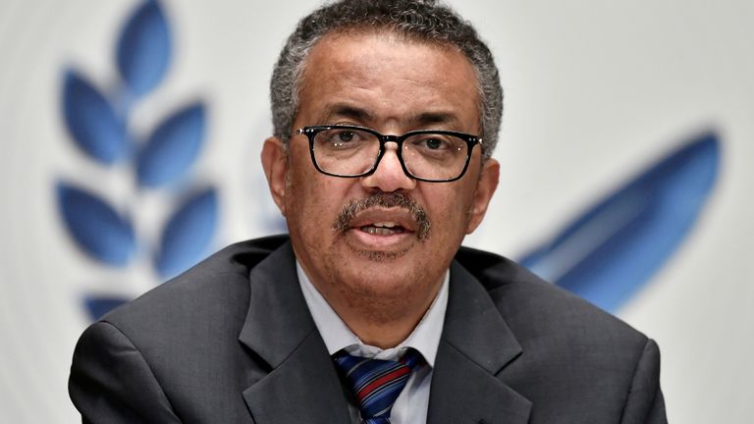The World Health Organisation (WHO) has kicked off the Decade of Action for Road Safety 2021-2030, in Geneva, with an ambitious target of preventing at least 50% of road traffic deaths and injuries by 2030.
WHO and the UN regional commissions, in cooperation with other partners in the UN Road Safety Collaboration, have developed a Global Plan for the Decade of Action which was released on October 28.
Globally, over 3,500 people die every day on the roads, which amounts to nearly 1.3 million preventable deaths and an estimated 50 million injuries each year – making it the leading killer of children and young people worldwide, WHO reports.
As things stand, road carnages are set to cause a further estimated 13 million deaths and 500 million injuries during the next decade, particularly in low- and middle-income countries. These are unacceptable numbers, both in absolute and relative terms.
Road traffic crashes have remained a major cause of death globally, even though every one of those deaths and injuries is preventable.
According to WHO Director-General, Dr Tedros Adhanom Ghebreyesus, the loss of lives and livelihoods, the disabilities caused, the grief and pain, and the financial costs caused by road traffic crashes add up to an intolerable toll on families, communities, societies and health systems.
“So much of this suffering is preventable, by making roads and vehicles safer, and by promoting safe walking, cycling and greater use of public transport. The Global Plan for the Decade of Action for Road Safety lays out the practical, evidence-based steps all countries and communities can take to save lives,” he added.
Recognizing the importance of the problem and the need to act, governments from around the world declared unanimously – through UN General Assembly Resolution 74/299 – the Decade of Action for Road Safety 2021-2030 with the explicit target to reduce road traffic deaths and injuries by at least 50% during that period.
Founder of Bloomberg LP and Bloomberg Philanthropies and WHO Global Ambassador for Noncommunicable Diseases and Injuries has bemoaned the lack of attention needed to safeguard lives on the roads.
“One of the best ways to save and improve lives is to make our streets safer - but that work often doesn’t get the attention it deserves,” said Michael R. Bloomberg.
He noted that Bloomberg Philanthropies has been working to improve road safety since 2007 by strengthening laws, increasing enforcement, redesigning streets, and using data.
"I’m glad to say that the WHO’s ambitious global plan for road safety includes many of the strategies that we’ve used to save lives, and it will help encourage governments around the world to make road safety the high priority it should be,” he further said.
Joining the call for safer roads is Director of the Department of the Social Determinants of Health, Dr Etienne Krug who insists that "it is time to put in action what we know works and shift to a much safer and healthier mode of transport. This new plan will lead countries onto a more sustainable path.”
She revealed that more than 50 million people have died on the world’s roads since the invention of the automobile.
"This is more than the number of deaths in World War One or some of the worst epidemics,” Dr Krug stressed.
This Global Plan describes the actions needed to achieve that target. This includes accelerated action to make walking, cycling and using public transport safe, as they are also healthier and greener modes of transport; to ensure safe roads, vehicles and behaviours; and to guarantee timely and effective emergency care.
It is aimed at inspiring countries, including governments and partners to act boldly and decisively, using the tools and knowledge gained from the last Decade of Action to change course.
The Global Plan outlines recommended actions drawn from proven and effective interventions, as well as best practices for preventing road trauma. It should be used as a blueprint to inform and inspire national and local plans that are tailored to local contexts, available resources and capacity.
The Global Plan is aimed not only at senior policy-makers, but also other stakeholders who can influence road safety, such as civil society, academia, the private sector and community and youth leaders.
Latest Stories
-
Gold Fields Ghana Foundation challenges graduates to maximize benefits of community apprenticeship programme
44 mins -
GBC accuses Deputy Information Minister Sylvester Tetteh of demolishing its bungalow illegally
55 mins -
Boost for education as government commissions 80 projects
1 hour -
NAPO commissions library to honour Atta-Mills’ memory
1 hour -
OmniBSIC Bank champions health and wellness with thriving community walk
1 hour -
Kora Wearables unveils Neo: The Ultimate Smartwatch for Ghana’s tech-savvy and health-conscious users
1 hour -
NDC supports Dampare’s ‘no guns at polling stations’ directive
1 hour -
Police officer interdicted after video of assault goes viral
2 hours -
KNUST’s Prof. Reginald Annan named first African recipient of World Cancer Research Fund
2 hours -
George Twum-Barimah-Adu pledges inclusive cabinet with Minority and Majority leaders
3 hours -
Labourer jailed 5 years for inflicting cutlass wounds on businessman
3 hours -
Parliament urged to fast-track passage of Road Traffic Amendment Bill
3 hours -
Mr Daniel Kofi Asante aka Electrician
3 hours -
Minerals Commission, Solidaridad unveils forum to tackle child labour in mining sector
3 hours -
Election 2024: Engagement with security services productive – NDC
3 hours

